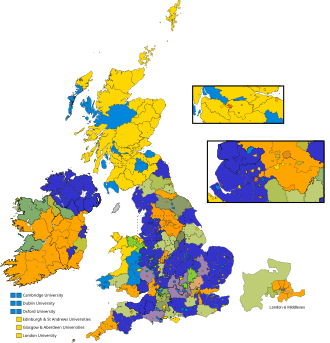17 November – 7 December 1868 | |||||||||||||||||||||||||||||||||||||
All 658 seats in the House of Commons 330 seats needed for a majority | |||||||||||||||||||||||||||||||||||||
|---|---|---|---|---|---|---|---|---|---|---|---|---|---|---|---|---|---|---|---|---|---|---|---|---|---|---|---|---|---|---|---|---|---|---|---|---|---|
| Turnout | 2,333,251 | ||||||||||||||||||||||||||||||||||||
| |||||||||||||||||||||||||||||||||||||
 Colours denote the winning party | |||||||||||||||||||||||||||||||||||||
 Composition of the House of Commons after the election | |||||||||||||||||||||||||||||||||||||
| |||||||||||||||||||||||||||||||||||||
The 1868 United Kingdom general election was held between 17 November to 7 December 1868. The Liberal Party, under William Ewart Gladstone, defeated the governing Conservative minority government, led by Benjamin Disraeli.
Contents
- Results
- Voting summary
- Seats summary
- Regional results
- See also
- Notes
- References and further reading
- External links
This was the first general election to be held after the passage of the Reform Act 1867, which enfranchised many male householders, thus greatly increasing the number of men who could vote in elections in the United Kingdom. It was the first election held in the United Kingdom in which more than a million votes were cast; nearly triple the number of votes were cast compared to the previous election in 1865.[ citation needed ]
This was the last general election at which all seats were taken by only the two leading parties, although the parties at the time were loose coalitions and party affiliation was not listed on registration papers.[ citation needed ]


